Three Pillars of a Lifelong Learning Organization at LuxGroup
LuxGroup has made its mark with heritage-inspired luxury journeys while nurturing a culture of lifelong learning as the foundation for sustainable growth.
Over the past two decades, LuxGroup has become known not only for creating luxurious and unique travel experiences rooted in Vietnamese heritage but also as an organization that embodies a distinctive culture of continuous learning. This belief stems from a simple truth: “To lead in the world of luxury, you need more than fine products; you need people who never stop learning.”
Every Friday, a one-hour training session has become a sacred tradition, where skills, attitudes, and knowledge are passed down from senior members to the next generation of Luxers. For me, learning is a passion and the key to turning each employee into a true expert in this fast-changing, highly demanding industry.
At LuxGroup, how are training programs organized?
Pham Ha: At LuxGroup, learning is not a formality; it is our DNA. Guided by the philosophy of Kaizen – continuous improvement, we design training programs to stay ahead of industry changes. Tourism evolves every day, from new technologies—particularly AI and digital transformation—to shifting consumer trends and the demand for personalization.
Our staff must constantly enrich their expertise, not just in service delivery but in cultural and artistic knowledge, so they can truly connect with guests. We also train them in crisis management—how to handle natural disasters, emergencies, service failures, or even social media crises. Knowing when to mobilize the entire system and when to resolve issues internally is essential.
During the low season, we focus on product innovation; in the high season, we emphasize real-world skills like managing overloads, stress control, and even the art of gracefully saying no. Many programs are designed based on internal surveys, ensuring we meet staff needs and aspirations. Training is delivered by internal experts, through cross-department sharing, or by external professionals. Mid-level managers are also sent to advanced management programs.

How do you measure whether training is effective?
Pham Ha: Effectiveness is not measured by the number of classes but by the ability to apply knowledge on the job. After three months, staff should be comfortable; after six, they must demonstrate measurable results. For sales teams, metrics are revenue and customer feedback. For others, it’s their ability to meet job requirements and deadlines.
We also use reverse evaluations, where subordinates give feedback on their managers, ensuring a holistic improvement process.
Ultimately, training must create real value for work and real satisfaction for customers. For us, service is not just service—it is service from the heart. Luxers are trained to exceed expectations and touch emotions, becoming true ladies and gentlemen of hospitality, serving distinguished guests with elegance and care.
What do you see as the most important factor in building a lifelong learning organization?
Pham Ha: The 70-20-10 model is our foundation: 10% comes from formal courses, 20% from peer learning and feedback, and 70% from real work experiences. But the core is self-motivation to learn. In tourism, if you stop learning, you fall behind.
We set clear incentives: three months without meeting KPIs or three customer complaints due to lack of knowledge leads to disciplinary action. On the other hand, those who learn and improve are rewarded and promoted. Leaders must lead by example. I read every day—at least one printed book a month—attend conferences, connect internationally, and share lessons directly with staff.
I myself had to learn from scratch: tourism, technology, ships, culture, art. Because I loved what I was learning, it never felt like work—and I could immediately apply it to build LuxGroup.
How do you make learning enjoyable rather than a burden?
Pham Ha: We integrate learning with culture and the arts—something Luxers love and something that makes them resonate more deeply with guests. When they gain cultural knowledge, they can speak the same language as travelers, creating genuine hospitality. For Gen Z, we equip them with confidence-building skills.
Beyond that, tourism requires practical skills: first aid, fire prevention, and handling unexpected situations on the ground. These are not just job-related but also useful for daily life. When staff see learning as personal growth, motivation comes naturally.
How much does LuxGroup invest in human development?
Pham Ha: We allocate 5% of annual profits to human development: training, mentoring, coaching, and wellness. LuxGroup operates under the philosophy of Kaizen – continuous improvement, guided by our 5G strategy (Go Global, Go Green, Go Digital, Go Pride, Go Happiness) and our 8P philosophy (Purpose, Passion, People, Planet, Profit, Place, Partnership, Prosperity).
This means we don’t measure success only by revenue, but also by the happiness of our people, our contribution to communities, and our responsibility to the planet.

LuxGroup is the home of the so-called “Great Little Ones”—individuals who may seem small on their own but together create something truly extraordinary and sustainable. It is a place where luxury meets creativity, service comes from the heart, and Vietnamese hospitality shines through.
Thank you very much!
